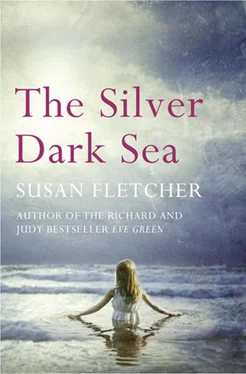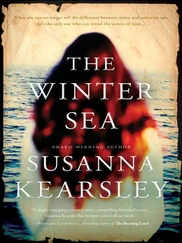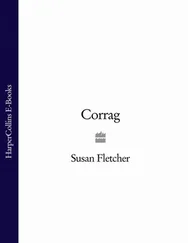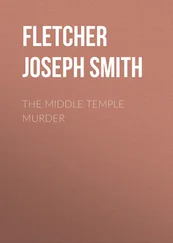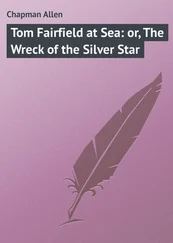SUSAN FLETCHER
The Silver Dark Sea

Table of Contents
Title Page SUSAN FLETCHER The Silver Dark Sea
The Fishman of Sye
Chapter One
Chapter Two
The North Wind
Chapter Three
The Seals with Human Hearts
Chapter Four
The Giants and what became of them
Chapter Five
The Loss of the Anne-Rosa
Chapter Six
The Message in a Bottle
Chapter Seven
The Wild Sheep and the Stormy Night
Chapter Eight
The Man of Sea Shanties
Chapter Nine
Kitty and the Jellyfish
Chapter Ten
The Silvered Nights
Chapter Eleven
The Puffins and the Mother
Chapter Twelve
The Blonde and the Bounty Inn
Chapter Thirteen
The Imps at the Farm called Wind Rising
Chapter Fourteen
The Sly Tide, or the Perigean Spring Tide, or the Highest Tide of all
Chapter Fifteen
The Claw and the Prediction
Chapter Sixteen
The Nurse and the Wasted Heart
Chapter Seventeen
The Twins, the Fishman, and the Lighthouse-Keeper’s Son
Chapter Eighteen
The Widow and the Man from Sye
Chapter Nineteen
The Stranger, Celia and the Night-Time Sea
Chapter Twenty
The Woman with the Inland Life
Acknowledgements
About the Author
From the reviews of The Silver Dark Sea
By the Same Author
Copyright
About the Publisher
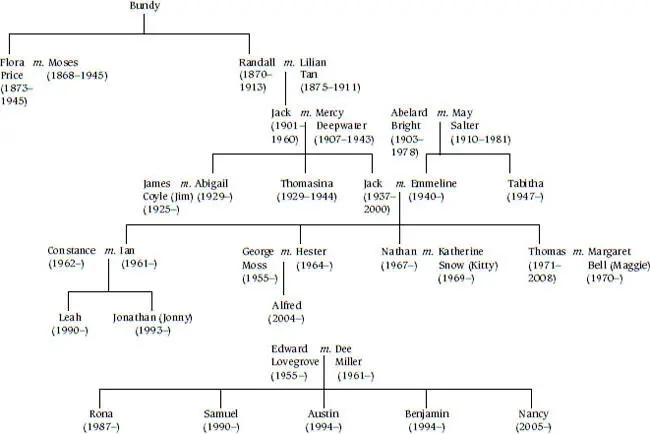
Once, there was a man. He was bearded and kind. He lived on an island in a stone-walled house with a tap that dripped, and a small peat fire. He had no friends to speak of. All his family were gone.
In his youth, he had been strong. He’d carried hay bales in one hand and lifted bags of grain up into the highest rafters. His farm had been neat and his pigs were fat; his shoulders browned in good weather. A handsome man, also. He loved a girl with sun-coloured hair and sometimes she’d smile as she passed him, so that his heart fluttered and his mouth ached. But above all else, he was shy. He’d blush when he heard her name; he’d stumble and not speak for days. She is too pretty , he thought to himself. And in time the sun-haired girl went away. She married another and the seasons blew on. Time passed. His beard greyed.
In the evenings he’d think of her. He’d sit by the fire and say I am old, now. How did it happen? The years had gone too quickly. His life had flown by, leaf-dry.
No children, no wife.
What a small life …
One night he was so sad he could not sleep. The loss kept him wide-eyed. He lay on his back, stared at the ceiling; the sea unfolded in the dark. And the day that followed, he left his home. He walked to the north of the island where the grass was wind-bent, where the skies were fast and the sea thundered. Why was he here? He didn’t know. But the wind tugged at his coat and foam skittered across the cold sand and the gulls above him called out no! No! He found himself on a stony shore.
I am so tired , he thought. I am so tired of being me. I am tired of being alone.
He thought of all the wasted years. Why had he never spoken of love? Why didn’t I tell her? Or see the wide world? He hadn’t stepped off the island, not once. It all seemed too late, now – too late.
He cried. He wept like a child.
But then he opened his eyes.
He opened them and saw a curious thing.
There was a man in the water. Not driftwood? Or weed? No – it was certainly a man. He bobbed, on the waves. He had black hair – wet, bluish-black – and a beard, and very pale skin. His eyes were round like a seal’s were. He did not blink or turn away.
Who is …?
Who might swim, in such waters? With these waves that were crashing like glass? And with a north wind blowing as strongly as this? Yet this sleek-haired man did not struggle. He was not drowning or asking for help. He simply floated. He seemed to smile, as he floated there. And then he raised his arms – he raised them above him, pressed his palms together as if he was in prayer – and he threw those arms forwards so that his fingertips broke the water and his head and body followed in an arc. He dived into the sea, and was gone.
Briefly, there was nothing.
Then, in his wake, there was a tail – a huge, silver-flashing tail. It raised itself up, like a mirror. And it sank down where the black-haired man had been.
The pig farmer stood very still.
He blinked, shook his head. A fish? Or a man? Neither? Or both? And at that moment, at that precise moment, as the sea rushed onto the stones at Sye and as a lone gull settled on the rocks nearby, he heard a voice very clearly. It was not a human’s voice. It did not feel as if someone was standing next to him; it was a deep, soft voice that seemed to be all around him so that the farmer turned, and kept turning.
It said this: there is hope .
The voice came off the cliffs. It rose up from the stones. He looked, but there was only the foam, fizzing, and the white lace of broken water where the tail had been.
That night, the farmer sat by his peat fire with a rug wrapped around him. He knew what he had seen. He’d seen a kind, human face and then a fish’s tail. He also knew what he had heard.
In the days that followed, he spoke of it. Do you know what I saw? At the cove called Sye? Some laughed at him, of course. But others listened with shining eyes for their own hearts were tired, or partly so, and they longed for this to be true. Hadn’t there been a legend, once? In a leather-bound book? They thought so. There had been a story just like the pig farmer’s story – of kind eyes and a raised silvery tail.
Oh, how they wanted to believe it. They longed for this half-man, half-fish.
They wanted to hear there is hope for themselves as they stood by an evening sea.
The storms, in time, passed away. Winter moved into a dappled spring. And one day, as the farmer rubbed the bristled backs of his pigs, he heard a voice behind him. A woman’s voice – warm and shy. Excuse me? Hello?
Her hair was no longer sun-coloured for she was older, also. But he knew who she was.
They married. She mended the broken tap in his house so that it did not drip. She rubbed his joints with linseed oil in the evenings and he combed her long, snow-white hair. He told her about the Fishman of Sye. I saw him – with my own eyes … And she nodded, believing him. For what wasn’t possible? What could not come to be? She had spent her whole life missing him – and she was with him, now.
They lived long lives together. Happy ones, too – they would sit outside his house as the sun lowered and whisper of their happiness. My darling wife … My love. They are buried in the churchyard, side by side. They are in the furthest corner, near the blackthorn trees, and if you are ever on that island you can see them if you wish to, lay some flowers down.
* * *
There is hope .
It’s strange, as all myths are. It is a familiar story, too, for many parents have whispered the tale of the Fishman to their children at night, or at bath-time, or on car journeys to pass the hours. He is ageless, they say, and cannot die. He lives as the fish do, in the quiet, thick-green depths, but sometimes he will surface and look over to the land. Even now, there is an islander who says he’s seen the Fishman – his loving smile, his scales that catch the light as he dives. Others say, too, that if you ever feel comforted, or if you ever hear there is hope or words like it – all will be well or you are not alone – as you walk by the sea or as you lower one foot down into a boat, or as you watch the tarpaulin on the log-pile shake in the wind, or as you go to draw the curtains in the evening and pause because the last light on the water is beautiful, like gold, or as you find your boots reflected in the wet, firm, low-tide sand it means the Fishman is passing. He is offshore, watching the island. It means he knows you are hurting – and he does not wish you to be.
Читать дальше
